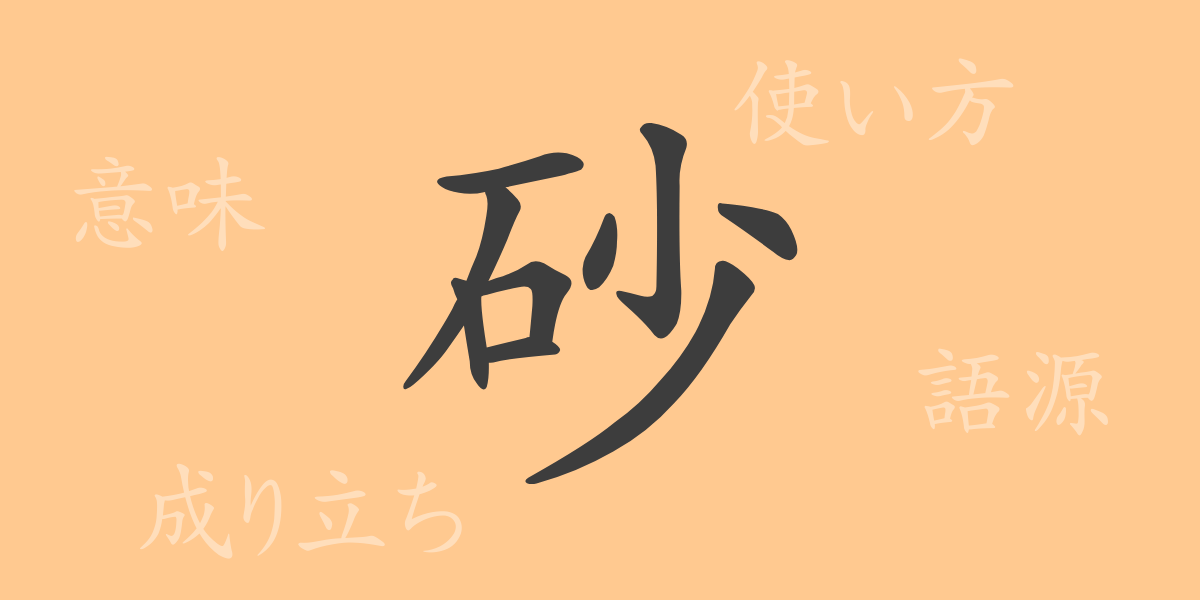On a bright summer day at the beach, the grains of sand glisten under the sun; the sand in an hourglass quietly flows, marking the passage of time; children play innocently in a sandbox. What stories lie hidden within the kanji “砂(すな)” that is so embedded in our daily lives? This article delves into the allure of the frequently used kanji “砂(すな),” exploring its origins, meanings, usage, readings, stroke count, and radical. We will also examine idioms, proverbs, and phrases that incorporate “砂(すな)” to understand how this kanji is woven into the fabric of our language.
Origins of 砂(すな)
The kanji “砂(すな)” combines the radical “石(いし)” meaning “stone” with “少(しょう)” which means “small,” representing tiny grains of stone. This character, originating from ancient China, was adopted into Japanese and became part of everyday language. The origin of “砂(すな)” directly points to its natural presence as small particles of rock.
Meaning and Usage of 砂(すな)
The kanji “砂(すな)” primarily refers to fine particles of rock or minerals found in nature. It is commonly used in various contexts such as beaches (砂浜(すなはま)), deserts (砂漠(さばく)), and hourglasses (砂時計(すなどけい)). Additionally, it can be used metaphorically, such as in “砂金(さきん)” which refers to valuable small amounts of gold, or in the phrase “砂を噛むよう(すなをかむよう)” to describe enduring hardship.
Readings, Stroke Count, and Radical of 砂(すな)
The kanji “砂(すな)” is fundamental in Japanese, and understanding its readings and structure is essential.
- Readings: The on’yomi (音読み) is “サ(さ),” and the kun’yomi (訓読み) is “すな(すな).”
- Stroke count: “砂(すな)” consists of 9 strokes.
- Radical: The radical is “石(いし),” indicating it belongs to the category of characters related to stones.
Idioms, Phrases, and Proverbs Using 砂(すな)
Many idioms, phrases, and proverbs in Japanese feature the kanji “砂(すな).” These expressions utilize the characteristics of sand to convey various aspects of life.
- 砂上の楼閣(さじょうのろうかく): Refers to plans or dreams that lack a solid foundation.
- 砂金を探る(さきんをさぐる): Describes the act of searching for small profits or valuable information.
- 砂を噛む(すなをかむ): An idiom describing enduring a difficult situation.
Conclusion on 砂(すな)
The world contained within the single kanji “砂(すな)” deeply intertwines with our lives, reflecting prominently in culture and language. The depth of meaning in these tiny particles and the richness of expressions they form exemplify the profound nature of the Japanese language. Just like the grains in an hourglass, each one accumulates over time to shape our words. Cherishing the stories and meanings held within “砂(すな)” is a testament to the enduring beauty of our language.

























